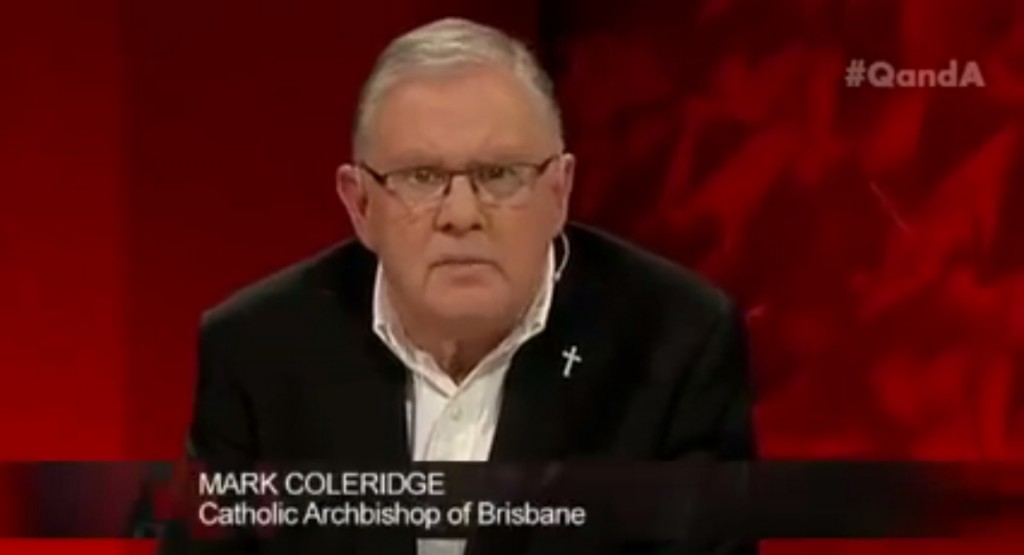
By Peter Bugden, The Catholic Leader
Australia’s asylum-seeker policy is a moral failure and an international disgrace, Brisbane Archbishop Mark Coleridge said on ABC TV’s Q&A on Monday night.
The Archbishop was responding to an audience question about the Australian Labor Party’s decision at a national conference last weekend to match the Federal Government’s policy of turning back asylum-seeker boats.
Archbishop Coleridge said the decision reflected a “moral failure on both sides of politics”.
“I don’t think there’s any way around the fact that, on both sides of politics now, federally, our policy on asylum seekers and refugees is simply a moral failure and is an international disgrace,” he said.
“It puzzles me that systematic cruel policies are devised and implemented by men and women in politics who are not themselves cruel: some of them I know.
“It’s one of the mysteries of public life in Australia at this time.”
Archbishop Coleridge said the number of asylum seekers trying to reach Australia was minuscule compared with elsewhere in the world.
“The least we could do is process them on shore and, again, I think part of the international disgrace of our current policy is what we have at Nauru and Manus Island,” he said.
Responding to a question on Pope Francis’ recent encyclical Laudato Si’: On Care for Our Common Home, Archbishop Coleridge described it as “a breakthrough document, because what it provides is precisely a genuinely human, moral, spiritual and even mystical framework for scientific and political decisions”.
“In other words, there’s more to all of this – to ecology, understood broadly – there’s more to it than politics, economics, science and certainly ideology,” he said.
“Very often, in the discussion, all you think is that it’s economics, politics, science and ideology.
“They all have their part to play. I’m not sure about ideology but the other three do.
“But what’s been lacking is precisely the kind of framework that the Pope offers.”
Archbishop Coleridge said the Pope’s key point was that everything was connected.
“That’s a very simple claim but the implications are immense and, from that basic claim, he then goes on to talk about an integral ecology,” he said.
“He’s not just talking about climate change. The letter’s about much more than that because what he’s talking about is environmental ecology and human ecology.
“For instance, he says the desertification of the planet starts with the desertification of the human heart – that the ecology of the human world and the ecology of the natural world are profoundly inter-related, and you can’t talk about one without the other.”
Guest host Virginia Trioli suggested Pope Francis was a political Pope but Archbishop Coleridge denied the Pope was “playing politics” or “playing economics” in the encyclical.
“People have said, ‘He should stick out of science, he should stick of politics, he should stick out of economics’,” the Archbishop said.
“I don’t think he’s getting involved in those, except by implication.
“But he’s providing a framework which politics, economics and science require.”
Asked what the Church’s response to domestic violence was, Archbishop Coleridge said it was firstly that addressing the problem could not be left just to governments.
“This is a community responsibility, including the Churches,” he said.
“One of the appalling things about domestic violence is just how hidden it’s been.
“It was one of those things that, like the abuse of the young, went on behind closed doors and there was a cone of silence over it.
“You know, it was, ‘It happened in the family home; let it be’.
“Those days are gone because what we are coming to see is that this is a widespread problem, right throughout the community, and it’s going to take the whole community, including the Churches, (to properly address it).”